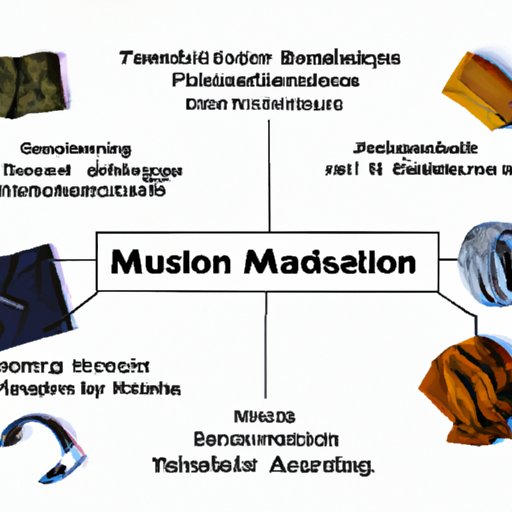Introduction
Fashion merchandising is a field that combines elements of both fashion design and business. It involves the creation, promotion, and sale of fashion products and services. A fashion merchandising degree can open up many doors in the industry and lead to a variety of career paths.

Overview of Career Paths for Fashion Merchandising Degree Holders
There are many different types of jobs available to those with a fashion merchandising degree. These include designers, retail buyers, visual merchandisers, sales representatives, and business analysts. Each of these positions requires a different set of skills and knowledge, but all involve working with fashion products in some way.
Types of Jobs Available to Fashion Merchandising Degree Holders
Designers create the latest fashion trends and styles. They use their creativity and knowledge of fabrics and colors to develop new looks. Retail buyers purchase items for stores based on customer demand and store needs. Visual merchandisers create displays to draw customers into stores and show off merchandise. Sales representatives promote and sell fashion products to customers. Business analysts use data analysis to determine what products will be successful and profitable.

Benefits of Pursuing a Fashion Merchandising Degree
One of the main benefits of having a fashion merchandising degree is the knowledge of the latest trends and styles. This knowledge can help you stay ahead of the competition and be more successful in your job. Additionally, having a degree in fashion merchandising gives you an understanding of consumer behavior and what influences purchasing decisions. Finally, having a degree can help you make connections in the industry, which can open up even more opportunities.

Education Requirements for a Fashion Merchandising Degree
The curriculum for a fashion merchandising degree typically includes courses in marketing, finance, accounting, and business law. Common courses include fashion forecasting and trend analysis, retail buying and visual merchandising, and apparel production and quality control. You may also take courses in fashion history, textiles, and computer-aided design (CAD).
Skills Necessary to Succeed in the Fashion Merchandising Industry
To be successful in the fashion merchandising industry, you will need to have excellent communication skills. You should also be able to think creatively and come up with new ideas. Attention to detail is also important, as you will need to be able to spot any discrepancies or problems. Finally, you must be organized and able to manage multiple tasks at once.
Role of Technology in the Fashion Merchandising Industry
Technology plays an important role in the fashion merchandising industry. Social media is used to market products and build relationships with customers. Automation of tasks such as inventory management and order processing has become increasingly common. Finally, data analysis is used to gain insights into customer preferences and buying behaviors.
Conclusion
Having a fashion merchandising degree can open up many doors in the industry. There are numerous types of jobs available, including designers, retail buyers, visual merchandisers, sales representatives, and business analysts. Additionally, having a degree provides you with knowledge of the latest trends and styles, an understanding of consumer behavior, and the ability to make connections in the industry. Education requirements include courses in marketing, finance, accounting, and business law, as well as fashion history, textiles, and CAD. In order to succeed, you will need to have excellent communication skills, creative thinking, attention to detail, and organizational skills. Technology plays an important role in the industry, from social media to automation of tasks to data analysis.
(Note: Is this article not meeting your expectations? Do you have knowledge or insights to share? Unlock new opportunities and expand your reach by joining our authors team. Click Registration to join us and share your expertise with our readers.)
